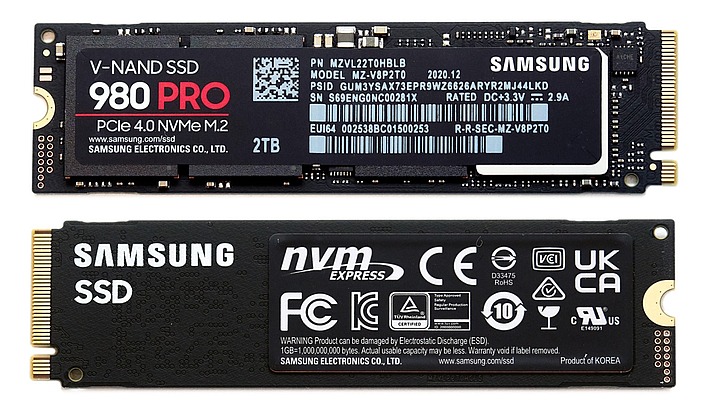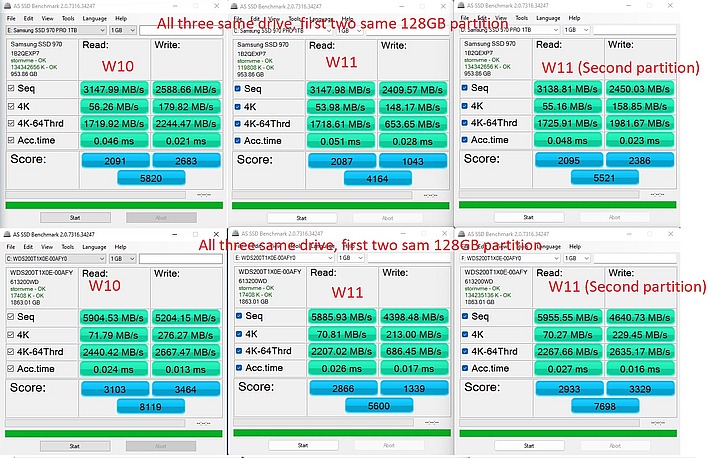Some Windows 11 Users Claim Microsoft's New OS Is Seriously Gimping SSD Speeds

Have you made the jump to Windows 11? While there aren't yet any "killer apps" for Microsoft's new OS, it's easy to understand (as a fellow enthusiast) the desire to try out the latest thing. Windows 11 brings along some important under-the-hood refinements for new and upcoming hardware, so in the near future it may be a good move, but for now, most folks are probably better-served by the more-familiar and understood Windows 10.
Then again, perhaps some of those aforementioned under-the-hood refinements are responsible for the technical issues that Microsoft's new baby has been facing. There were multiple issues on launch with AMD CPUs, a problem where the "chkdsk" tool could damage SSDs, and many users have reported general performance issues, including an overall "laggy" or "sloppy" feeling to the new OS.
Some of that "lag" might be attributable to an issue that was first raised three months ago and doesn't seem to have been addressed. As Neowin reports, users on multiple forums have been complaining since early September of poor random write performance on Windows 11, using the same hardware configuration as on Windows 10. Some reports, such as this one from Reddit user /u/adrynalyne, show extremely degraded performance, all the way from 2,148 MB/sec down to 637 MB/sec on a 4K random write test.
We think it's important to note that these benchmarks, while likely legitimate, don't really indicate much about real-world performance for most users. All of the worst examples we've seen have been tests using large queue depths and particularly, large numbers of threads. That type of I/O is only really seen in database servers and datacenters; client desktops rarely exceed single-digit I/O queue depths or perform multi-threaded disk I/O.
Microsoft doesn't appear to have officially acknowledged this issue. A new Reddit poster named "neochristi" replied to a thread about the problem back some three months ago claiming to be a developer on "the Microsoft file systems team" asking for more information, but that Reddit account has never made any other posts, so who knows if that was legitimate.
We're interested in hearing back from HotHardware community members that have tested both Windows versions. Have you seen degraded random write performance? If so, or if you have the means to test using CrystalDiskMark, AS-SSD, or similar tools, let us know in the comments below.
Credit to Neowin for resurfacing this story.



